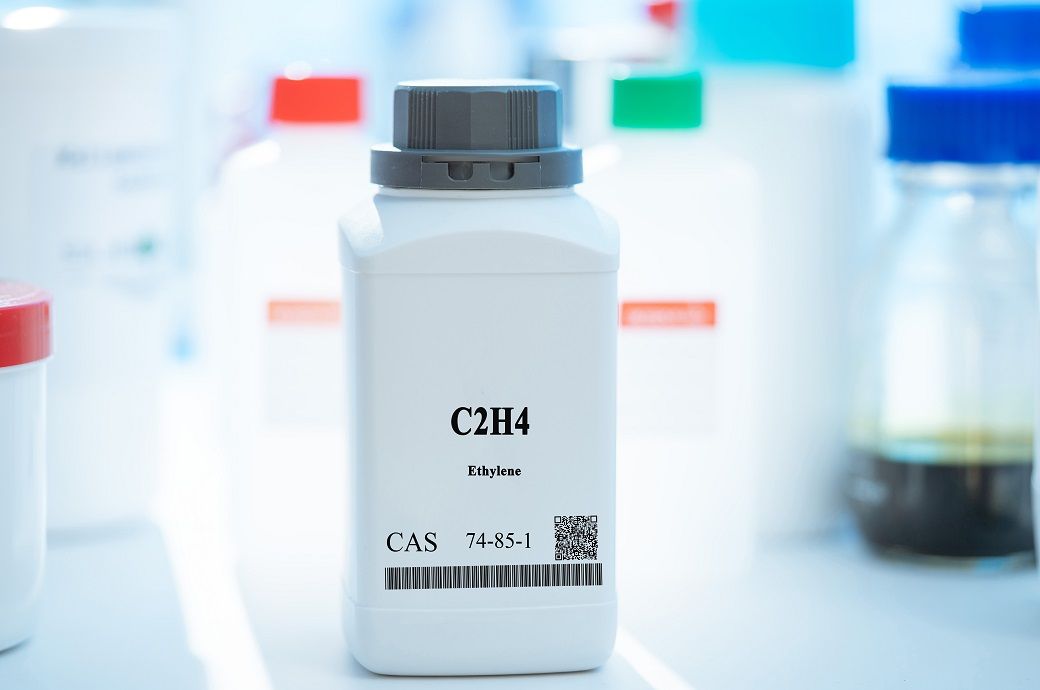
Asahi Kasei, Mitsui Chemicals, and Mitsubishi Chemical have decided to perform a joint feasibility study on feedstock and fuel conversion etc. at the three companies’ ethylene production facilities in western Japan in order to advance carbon neutrality and lead the decarbonization of society.
Ethylene production is the upstream starting point of the petrochemical industry. Basic chemicals derived from ethylene are made into materials that are used in the manufacture of various products such as daily necessities, automobiles, and semiconductors. As such, ethylene production serves as an important foundation that supports people’s lives. However, a large amount of petroleum-derived feedstock and fuel is consumed in the production process. The reduction of GHG emissions from ethylene production is thus a serious issue.
In order to achieve carbon neutrality by 2050 in accordance with the target set forth by the Japanese government, Asahi Kasei, Mitsui Chemicals, and Mitsubishi Chemical have each adopted policies to become carbon-neutral by 2050 by reducing GHG emission targets to effectively zero, and each is advancing measures to reduce energy consumption and apply technological development for low-carbon feedstock and fuel.
However, if initiatives are taken by each company individually, the speed of implementation and efficiency of GHG reduction are limited. This makes it increasingly necessary for multiple petrochemical manufacturers located nearby to cooperate with one another through mutual provision of technology and joint implementation of measures that contribute to carbon neutrality.
Through coordination across different districts among the three companies having sites in western Japan, the joint feasibility study is expected to raise the speed and efficiency of the transition to carbon neutrality of the companies’ ethylene production facilities and each company’s petrochemical products.
Moving forward, the three companies will study concrete measures that contribute to the transition to carbon neutrality such as replacing petroleum-derived resources with biomass feedstock, conversion to low-carbon fuel, etc., while also studying optimal future production arrangements.
Comments from each company:
The Asahi Kasei Group is tackling the issue of climate change with a two-pronged approach of reducing our own GHG emissions and providing products and technologies that help to reduce GHG emissions throughout society from the perspective of “Care for Earth” based on our Group Mission of contributing to life and living for people around the world. We are aiming to achieve a carbon-neutral sustainable world by advancing various efforts in a wide range of fields from upstream to downstream in the value chain such as raw materials, production processes, energy, product use, and product recovery.
Toshiyasu Horie
representative director, primary executive officer
Asahi Kasei Corp.
In November 2020, Mitsui Chemicals declared a commitment to become carbon neutral by 2050. We are advancing efforts for carbon neutrality and a circular economy centered around the two pillars of reducing our own GHG emissions (Scopes 1 and 2) and maximizing the avoided GHG emissions of our products over their entire life cycle. To realize this, working with our business partners, customers, and consumers, we will reshape the world starting with the materials of materials.
Tadashi Yoshino
representative director, member of the board, senior managing executive officer, CTO
Mitsui Chemicals, Inc.
The Mitsubishi Chemical Group recognizes sustainability as a core element to manage its corporate activities under our Purpose, which “We lead with innovative solutions to achieve KAITEKI, the well-being of people and the planet.” Through this cooperation, we will make a broad contribution to the carbon neutrality and circular economy of the Japanese chemical industry.
Yasuo Shimodaira
representative corporate executive officer
executive vice president
Mitsubishi Chemical Group
Fibre2Fashion News Desk (HU)